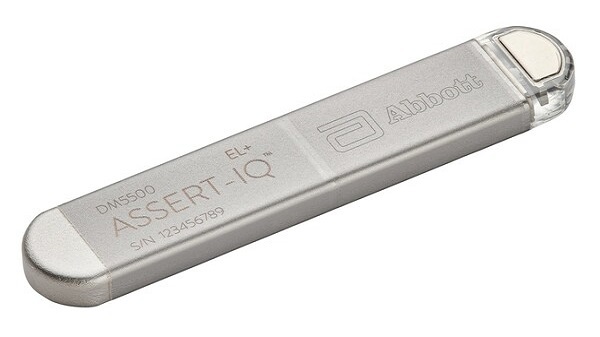
Global healthcare company Abbott said its insertable cardiac monitor (ICM), Assert-IQ, has gained FDA clearance, making the device available to physicians nationwide.
Assert-IQ is the world's longest-lasting Bluetooth ICM and offers doctors two battery options, either three or six years, according to a release on May 18.
Dr. Dhanunjaya Lakkireddy, medical director of the Kansas City Heart Rhythm Institute, said Abbott's ICM offers significant advancements in the diagnosis and management of irregular heart rhythms. It allows patients to continue their daily activities while the device monitors irregularities that are often hard to spot, and helps physicians determine treatment, the news release said.
"The Assert-IQ ICM is a significant advancement amongst the tools that are currently available for the diagnoses of irregular heart rhythms," said Dr. Dhanunjaya Lakkireddy, medical director of the Kansas City Heart Rhythm Institute, according to the press release. "Given that the device is small and is inserted just under the skin, patients can go about their daily lives, enjoying the activities they love, and the ICM does the work. With Assert-IQ ICM's advanced algorithms, it can detect even hard-to-spot irregularities and help physicians determine a treatment course. It can be a very valuable tool both for short-term and long-term management of cardiac arrhythmia disorders.”
Diagnosing irregular heartbeats, or arrhythmias, can be difficult due to their transient nature, the press release stated. In order to address this challenge, implantable cardiac monitors, ICMs, are placed just beneath the skin on the chest. The devices are equipped with sensors and are designed to continuously monitor a person's heart in real time. This allows for the detection and identification of arrhythmias that may cause symptoms like fainting, irregular pulse, and shortness of breath.
Monitoring can be important when caring for people going through therapy, who have had a cardiac ablation procedure, or who are at risk of developing arrhythmias like atrial fibrillation, the release said.
The technology uses a Bluetooth connection to a transmitter such as a person’s cell phone. It checks heart rhythms every 20 seconds and transmits results in real time to the clinic’s portal, the news release said. There are also models that can be remotely programmed so clinicians can adjust settings without needing a patient to come in, the release said.